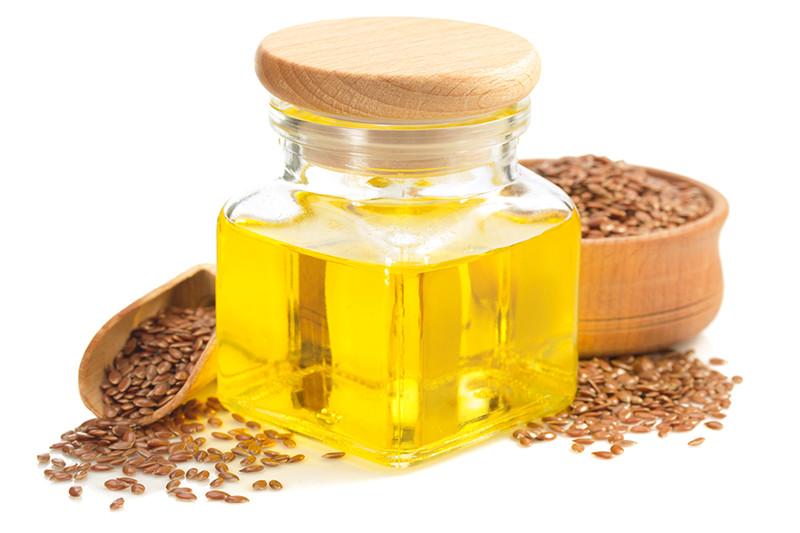

Linseed Seed Oil
$5.00/kg
Linseed Seed Oil is made from flaxseed, which is the flax seed. Cold-pressed linseed oil is rich in alpha-linolenic acid and is the most effective way to supplement linolenic acid.
Nutrients
The sum of crude protein, fat and total sugar in flaxseed is as high as 84.07%. Flaxseed protein has a complete range of amino acids and an essential amino acid content of 5.16%. It is a plant protein with high nutritional value. The content of α-linolenic acid in linseed oil is 53%. α-linolenic acid is an essential fatty acid in human body, which can be converted into eicosapentaenoic acid and docosahexaenoic acid in human body. They are effective activities in fish oil. ingredient. Alpha-linolenic acid has many effects, such as anti-tumor, anti-thrombosis, blood lipid lowering, nutrient brain cells, and regulation of autonomic nerves. Flaxseed contains a large amount of polysaccharides, which have anti-tumor, anti-virus, anti-thrombosis and blood lipid lowering effects.
Linseed Seed Oil also contains VE, a strong and effective free radical scavenger that delays aging and anti-oxidation. Flax seeds contain 23 mg/100 g of flavonoids. Flavonoids have a good effect on lowering blood fat and resisting atherosclerosis. Linseed Seed Oil has a high content of unsaturated fatty acids and a high iodine value. It must be added with an antioxidant or a nitrogen-filled seal.
Impact on maternal
Both EPA and DHA are important intermediate metabolites in the metabolism of α-linolenic acid, and play a very important physiological role in human life activities. After α-linolenic acid enters the human body, EPA and DHA are sequentially formed under the action of enzymes. This process is irreversible, that is to say, α-linolenic acid has more effects than DHA, and the effect is more comprehensive. Moreover, when α-linolenic acid enters the human body, the human body can rationally carry out metabolism according to its own needs. As long as the amount of α-linolenic acid is sufficient, how much DHA can be supplemented by the body, and the excess α-linolenic acid is also It can be metabolized into other substances such as EPA to complete other physiological functions. DHA does not have such characteristics, and supplementing excessive DHA will have negative effects, such as low immunity.
Anticancer effect
Anti-cancer and anti-cancer ingredients of linseed oil: Omega-3 fatty acids, which reduce the harmful biochemical substances produced by the body under stress. It is good for stabilizing emotions and keeping calm. Prevent depression and insomnia. It also helps to alleviate allergic reactions. Great for treating and preventing arthritis. It can break down cholesterol. Balance blood pressure and prevent blood from clotting. Prevention of stroke and heart disease. It can also speed up metabolism. Improve the capacity of the immune system. It has the function of inhibiting certain cancer cells.
Lignans, which are absorbed into the intestines, are converted into anticancer compounds by the good bacteria contained in the body to prevent cancer. It also regulates the amount of hormones in the body, relieves some of the symptoms of menopause, inhibits ovarian estrogen synthesis, and reduces the probability of breast cancer.
Inhibition of thrombotic diseases
A. omega-3 series α-linolenic acid and change the fluidity of platelet membrane, thereby changing the reactivity of platelets to stimulation and the number of platelet surface receptors.
B. Because the omega-3 series of α-linolenic acid and arachidonic acid compete for cyclooxygenase and lipoxygenase in cell membrane phospholipids, the metabolites are changed. The production of TXα2, which causes platelet aggregation, is inhibited, and the production of biologically inactive TXα3 is increased, and PGI3 is increased to inhibit the tendency of platelet aggregation to exceed platelet aggregation.
Suppress allergic reactions
Regarding the release of platelet activating factor (PAF) for allergic inflammation, α-linolenic acid can be produced for use.
| Industry Category | Agriculture/Plant-Animal-Oil/Other-Plant-Animal-Oil |
|---|---|
| Product Category | |
| Brand: | |
| Spec: | |
| Stock: | |
| Origin: |
